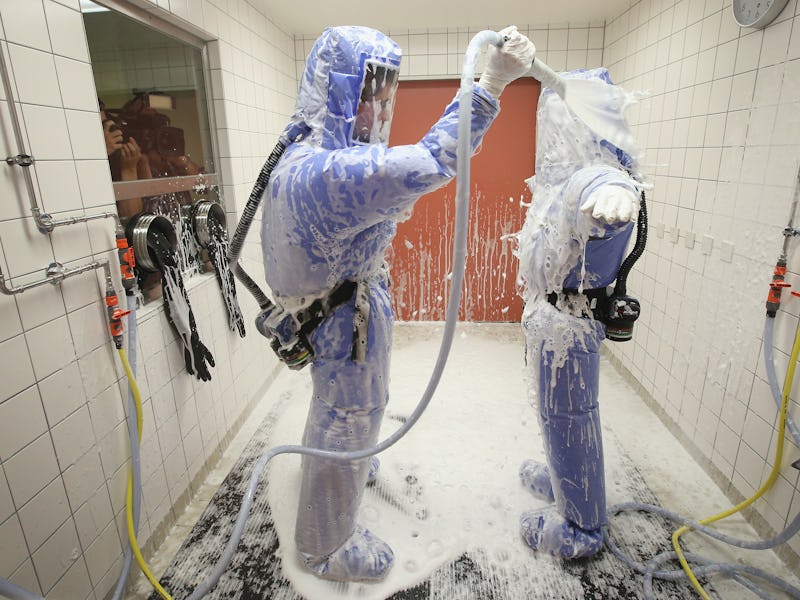Reminder: Risk of Contracting Ebola Through Casual Contact Is Extremely Low
Even sharing a bed with someone infected with Ebola doesn't necessarily mean you'll get it.

Nowadays, you only need a drop of blood to see if you’ve got Ebola before you start exhibiting symptoms, but how do you actually get Ebola? In a study just published on November 22 in the International Journal of Epidemiology, the University of East Anglia reports their findings from the first systematic review of Ebola risks.
After the Ebola scare in recent years, a lot of false information has been circulated about just how one can contract the virus. A team from UEA set out to set the record straight and let people know that with the proper care, contracting Ebola isn’t inevitable — even if you’ve shared the same bowling ball.
The researchers have found that casual contact with someone infected with Ebola doesn’t mean you’re at risk for contracting the virus. In fact, you could share a house with someone that has Ebola and not contract the virus — provided you didn’t come into contact with that person if they were in the later stages of the illness.
“Many forms of contact such as conversation, sharing a meal, sharing a bed, and direct or indirect touching, are unlikely to result in disease transmission during incubation or early illness,” says Paul Hunter, one of the study’s lead researchers from UEA’s Norwich Medical School.
According to the Centers for Disease Control and Prevention, Ebola can be spread person-to-person through direct contact (through broken skin or mucous membranes in the eyes, nose, or mouth) with the blood or body fluids of someone with Ebola (or someone who has died from the illness) as well as objects that have been contaminated with Ebola-infected bodily fluids.
The team looked at data (including clinical notes, as well as interviews with survivors and their close contacts) from 31 reports of the disease in 10 African countries over the span of nearly 50 years. They found that most of the data points to direct contact with people in later stages of Ebola as well as those who have recently succumbed to the virus as the biggest risk factors of contraction.
One of the ways communities can mitigate the spread of Ebola to more people is to bypass traditional burial methods and opt for cremation instead.
“Urgent diagnosis and hospitalization really is the key to stopping the spread of this disease at least until a vaccine is widely available,” says Hunter. However, he notes that the vaccine wouldn’t need to be distributed to everyone. Instead, close contacts and health care workers would take precedence since they are more likely to have been exposed to patients in the late stages of the illness.
There you have it: The fear of contracting an illness can be way more contagious than the actual virus itself… provided communities and health care workers take the proper precautions to contain it.